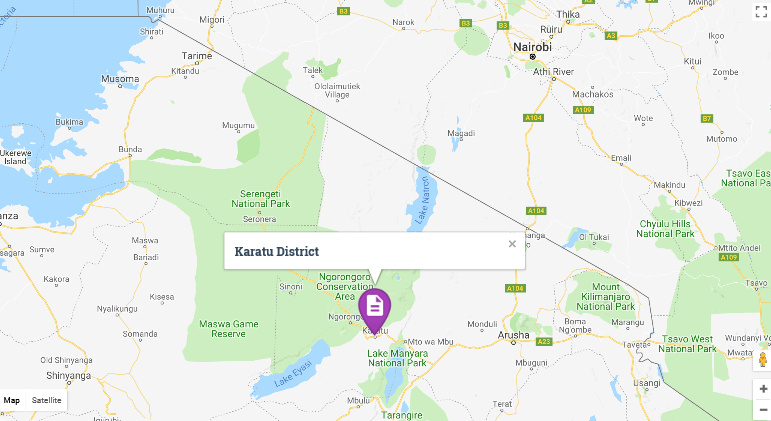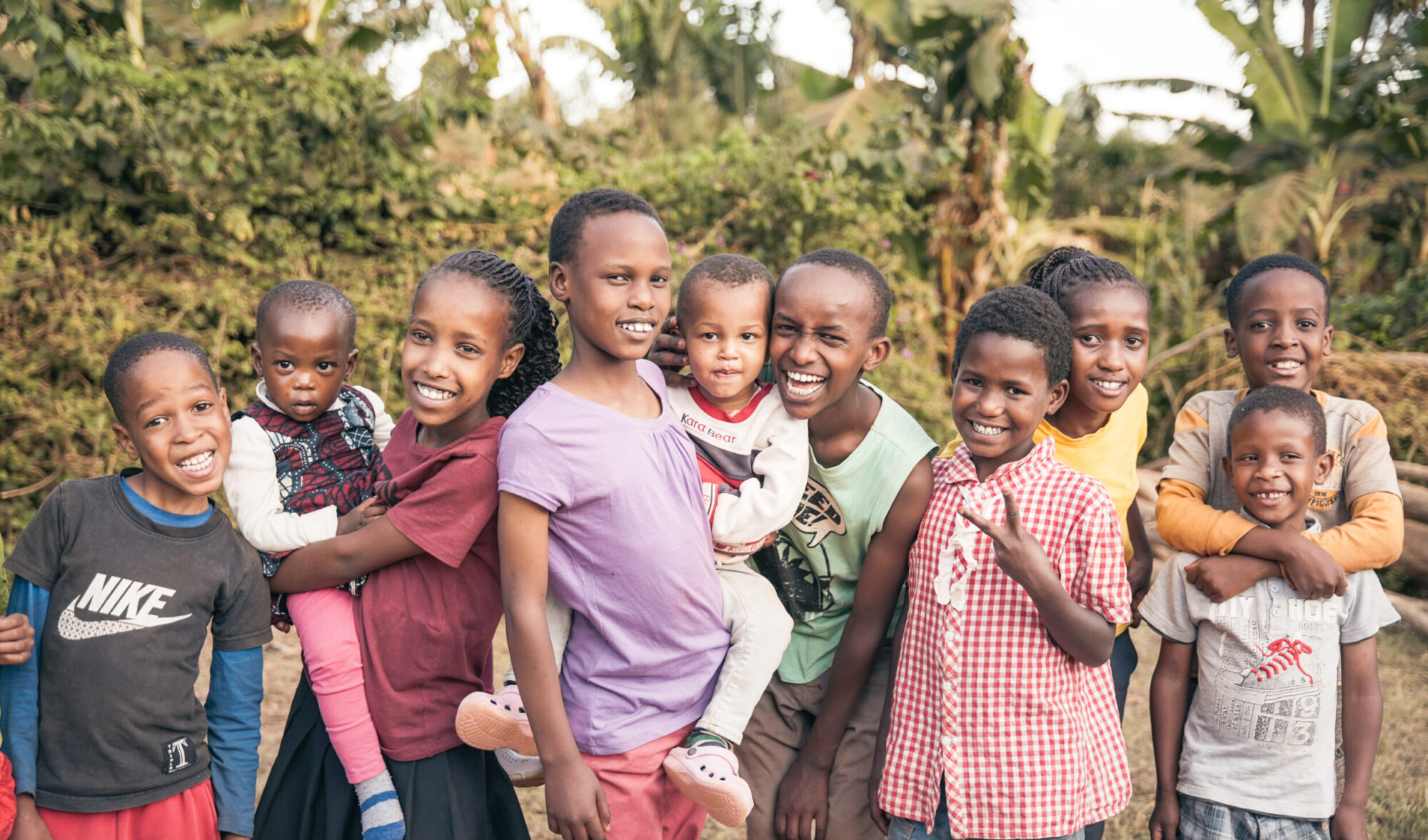Karatu is a village in Tanzania (East Africa); 2,5 hours west of Arusha city.

The northern horizon of this village is blocked by the Ngorongoro Crater. It is a dormant volcano and home to wildlife that attracts tourists from around the world. South of Karatu lies Lake Manyara NP. Between the Ngorongoro Crater and Lake Manyara are several rolling hills and valleys. Out of this pristine countryside arises the homes of Karatu’s villagers.
Karatu is a busy village, crowded with men on bicycles and motorcycles, women carrying goods on the tops of their heads, and children playing in the streets. The people of this region mostly come from the tribe called Iraqw, a tribe of Tanzania historically known for their agricultural and irrigation skills. Located along the northern safari circuit, Karatu serves as passthrough to the Ngorongoro Highlands. Known for its vast landscape and pure African coffee, thousands of people from abroad visit this part of the country each year.
Although Rural Tanzania can be a fascinating place to visit, Tanzanians face enormous struggles and unfortunately, children are often at great risk. Approximately 68% of the population of Tanzania lives below the international poverty line of $1.25 per day. HIV is widespread, having orphaned more than 1.2 million children in Tanzania. In Karatu, a shockingly large number of people turn to alcohol to ease the pain of their circumstances, only creating more problems, broken homes, and abused or abandoned children. Superstition and deeply rooted traditional beliefs add to the Tanzanian struggle, especially in small towns like Karatu. Unplanned children are the first to fall victim to cruel abandonment and superstitious ritual, such as leaving newborns in the jungle for animals, burying children alive and dumping them at local trash sites.
Perhaps, the worst alleged curse is one that affects the family of a mother who has had a child outside of marriage rituals. It is said that the mother of the child will bring a curse to the entire family. This leaves many mothers with a devastating choice when her baby arrives: keep the baby and face family and societal exclusion or abandon the child to avoid “curse.”




